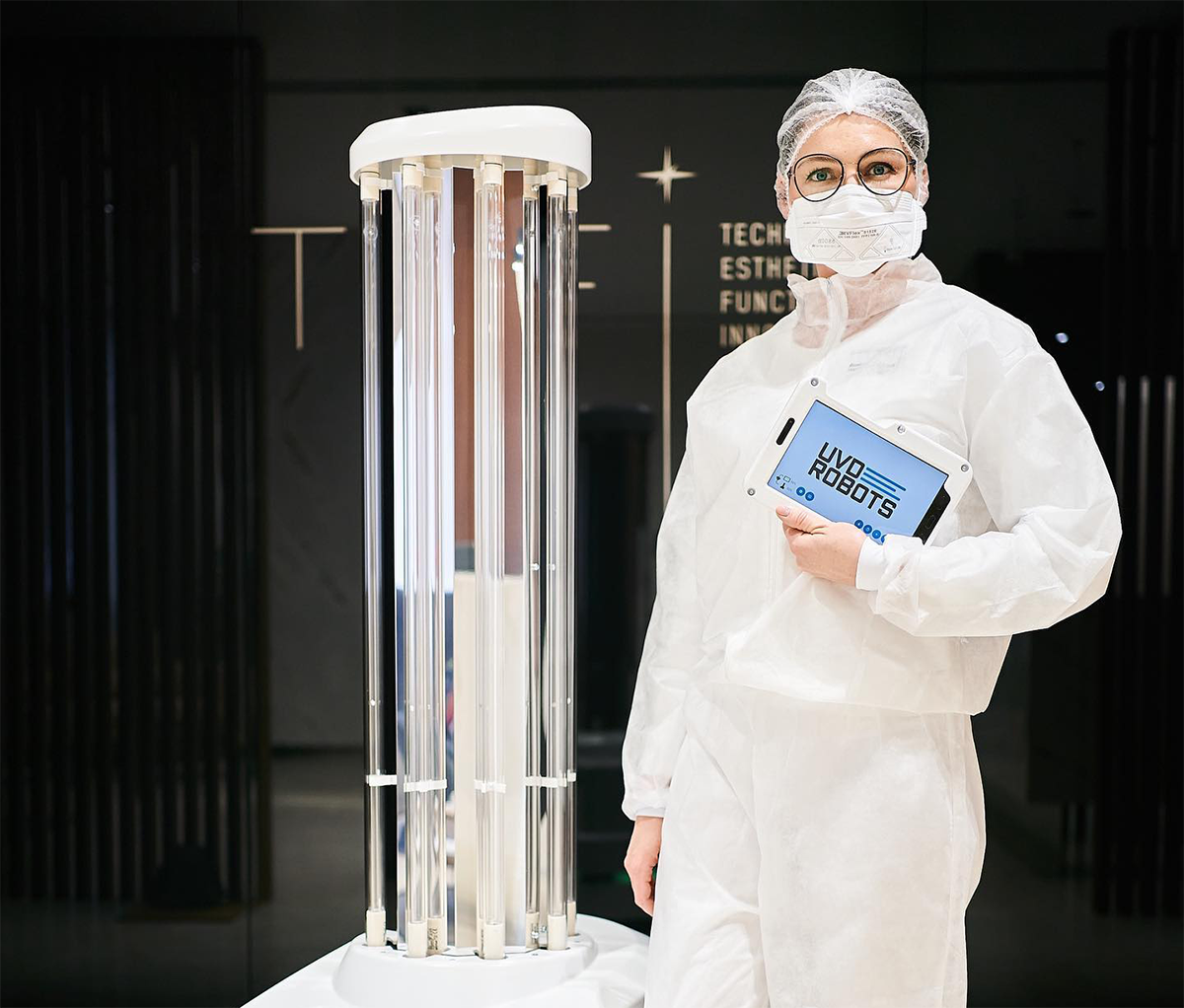Title
Content
Title
Content

Airports, Hotels, and Railways Look to Autonomous Disinfection Robots to Reinforce Peace of Mind and Support Recovery of Travel Industry.
With the latest forecast by Tourism Economics by the U.S. Travel Association predicting $505 billion in losses globally through the end of 2020, UVD Robots announced its autonomous disinfecting robot as being increasingly deployed within hotels, railways, and airports across the globe. UVD Robots’ mobile, fully autonomous robot integrates UVC light and a large number of disinfection-specialized apps to disinfect against bacteria.
“As the travel and hospitality industry looks to bring travelers back, they are working to meet new and heightened expectations for cleanliness in order to build trust,” said Per Juul Nielsen, CEO of UVD Robots. “Because our UVD Robots are simple, safe and effective, we are working with an increasing number of hotels, airports, railways and others to bring disinfection solutions to these facilities. We couldn’t be more thrilled than to play a role in the recovery of this industry.”
In early September 2020, Yotel Boston, a 326-cabin hotel located in Boston’s Seaport District, announced it would implement UVD Robot technology. Beginning September 15, 2020, select cabins within Yotel will be cleaned by UVD Robots when vacant. In addition to this, all of Yotel's high-touch public spaces will be disinfected daily at closing time.
“YOTEL Boston is honored to implement the UVD Robot technology, offering guests an even higher level of disinfection throughout public spaces and selected cabins,” said Trish Berry, General Manager, YOTEL Boston. “Right now it’s critical for the hospitality industry to provide travelers with reassurance that we’re taking every possible step from check-in to check-out. Our partnership with UVD Robots is an extension of the YOTEL signature hi-tech, lo-touch customer experience and the operation #SmartStay protocols we’ve established to deliver every type of guest with exactly what they need to feel safe throughout their travels."
Last week, The Gerald R. Ford International Airport (GRR) became one of the first airports in the U.S. to use a UVD Robot. UVD Robots were used to disinfect bathrooms, baggage claim areas, passenger checkpoints, TSA areas, and other areas after hours.
“Grand Rapids airport chose to use UVD Robots due to the autonomous ability of the product allowing GRR to be on the forefront of UVC Technology,” explained Timothy Haizlip, C.M., Maintenance Director of Gerald R. Ford International Airport Authority. “UVC technology is in alignment with our ‘Fly Safe, Fly Ford’ Campaign.”
Additionally, as part of its “Fly Safe” campaign, UVD Robots has already been operational at Heathrow Airport in London for over two months. “We’ve received an excellent response on the robots’ performance there,” says Heath Williams, CEO and Founder of NESA Robotics, UVD Robots' sales partner in the UK, who is also working with St. Pancras International railway station in London. St. Pancras will be receiving UVD Robots in the coming days, and is planning to deploy them to disinfect washrooms at the station.
Several additional projects are also currently being conducted in the travel industry of the Middle East, including the Hamad International Airport in Qatar.
UVD Robots is a subsidiary of one of the world's leading groups of professional service robot development, Blue Ocean Robotics, which also includes subsidiaries like GoBe Robots and PTR Robots. Blue Ocean Robotics is headquartered in Europe’s “robot capital” of Odense in Denmark, where the group develops, produces, and sells professional service robots for fields such as hospitality, construction, and agriculture. The robots are developed from initial problem-oriented conceptual and design stages through latter stages focusing on development, commercialization, and scalability.